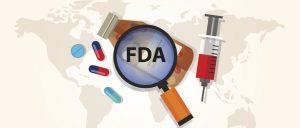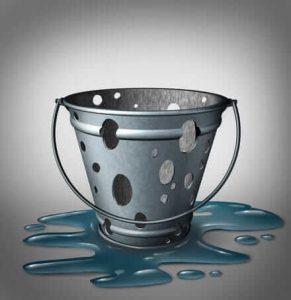
We have often heard about products being pulled from the shelf due to defects in the manufacturing, packaging, or some other sort of health risk. Those who use the products—especially when they are medications—must take action immediately to protect their health and well-being. But how do they find out and what should they do? This blog will give a little more detail about what a recall is and how the public is informed.
A recall is when a product is removed from the market or a correction is made to the product because it is either defective or potentially harmful. Recalls may be conducted on a company’s own initiative, by Food and Drug Administration (FDA) request, or by FDA order under statutory authority. If a drug you are using is recalled, contact your doctor immediately before taking any additional action.
Classes of Product and Drug Recalls
There are three different classes of product and drug recalls. They are as follows:
- Class I recall: A situation in which there is a reasonable probability that the use of or exposure to a violative product will cause serious adverse health consequences or death. An example of this type of recall would be a food that contained botulinum toxin, food with undeclared allergens, or a label mix-up on a life-saving drug.
- Class II recall: A situation in which the use of or exposure to a violative product may cause temporary or medically reversible adverse health consequences or where the probability of serious adverse health consequences is remote. An example of this type of recall would be a drug that is under-strength but is not used to treat a life-threatening situation.
- Class III recall: A situation in which the use of or exposure to a violative product is not likely to cause adverse health consequences but still violates FDA labeling or manufacturing regulations. An example of this type of recall would be a container defect such as a lid that does not seal or a lack of English labeling on retail food.
If you learn about a recall that affects any medication, food, or other product you use regularly, you should act to learn more. Do not stop a medication without first talking to your doctor. However, you should discontinue the use of food or hygiene products immediately if they fall under a Class I or Class II recall.
You may want to find a suitable alternative before you stop using a product that was recalled as a Class III, although a call to your doctor is still a good idea.
For a free legal consultation, call 800-537-8185
How does the Public Find Out about an FDA Recall?
The FDA works with industry and state partners to publish press releases and other public notices about product and drug recalls that may present a significant risk to the consumer or user of the product. Not all recalls that have press releases are published on the FDA website. Not all recalls are announced to the media, but they are listed in the FDA’s weekly Enforcement Report.
The FDA seeks publicity about a product and drug recall only when it believes the public needs to be alerted to a serious hazard. When a recalled product has been widely distributed, the news media is often used as it can reach large numbers of people. The FDA website also offers e-mail alerts and has accounts on Facebook and Twitter. Attorney ads are also commonly used to announce recalls to the public.
The recalled products that are most likely to make it to the evening news are those that could pose a significant health risk or are used by many people. For example, when the FDA ordered that all ranitidine (Zantac) medications be pulled from pharmacy shelves in April 2020, it made headlines because it was one of the most widely used medications in the country and might cause cancer.
What to Do If You’ve Been Harmed by a Recalled Drug
If you’ve been taking a medication that was recently recalled, consult first with your doctor to determine if the drug has adversely affected you in any way. If you feel like your doctor misled you about the drug, consult with a different doctor. Ensuring your health and safety is the top priority. Then, identify any concerns you may have because of the recalled product.
Next, speak to a Birmingham defective drug attorney. You might be able to hold the drug manufacturer, doctor, or pharmacist liable for your injuries. You might also be able to join a mass tort or class action suit if enough people suffered harm or were put at risk. Class action and multidistrict litigation are common in recalled medication and medical product cases.
If you suffered complications, injuries, or adverse events as a result of a recalled drug, you may be able to take legal action on your own regardless of a mass tort. You could recover money to pay for your:
- Current and future medical bills
- Lost wages
- Pain and suffering
- Other expenses and losses
To learn more, you can discuss your options with a defective drug lawyer near you about your legal options. You will not want to try to take on a pharmaceutical company on your own, but law firms know what to do and can manage your claim for you. Most work is based on a contingency fee.
Click to contact our personal injury lawyers today
Speak to an Attorney from Morris Bart, LLC for Free Today
Reach out to us today. The Morris Bart law firm represents clients across the Gulf South in defective drug and medical device cases. We will assess your rights for free today. We can determine your options based on the facts of your case. Our team handles cases in Alabama, Arkansas, Louisiana, and Mississippi.
Call us today to learn more. We can help you decide what to do next.
Questions?Call 800-537-8185
to find a Morris Bart office near you.





